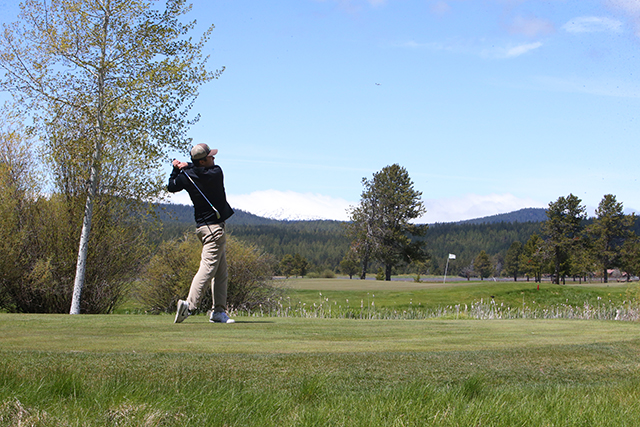Letter: Sportsmen should oppose Walden’s forest roads bill
Published 12:00 am Saturday, July 5, 2014
Now that the House Natural Resources Committee has had a hearing on Congressman Greg Walden’s forest roads bill HR4272, it’s time for sportsmen to have their say. The bill would prohibit the U.S. Forest Service from implementing and enforcing its Travel Management Rule and require any change in open-road densities on national forests to be signed off on by local counties. The intent of the bill is to take management decisions out of the hands of the Forest Service and put them in the hands of local communities.
The key question that was not addressed in the hearing is, who will have the final decision-making authority in situations where conflicts over road closures can’t be resolved?
The Forest Service uses the best available science as well as recommendations from Oregon Department of Fish and Wildlife and conservation groups, and tries to balance those with the needs of the community. Keeping the decision-making authority within the Forest Service will help to ensure that impacts of roads on wildlife habitat and security will have an equal influence in that collaborative process.
Our national forests belong to all Americans, not just local citizens. Many sportsmen travel long distances to hunt and fish on public lands, and in so doing help support local economies. They place a high value on the quality of the habitat, and abundant hunting and fishing opportunities. Excessive and unregulated motorized travel robs them of both.
Studies conducted at Starkey Experimental Research station in Oregon, and in Idaho and Colorado, leave no doubt whatsoever about the negative impact motor vehicles have on elk and deer. As unregulated motor vehicle traffic increases, elk and deer seek more remote areas, or move to private land where the pressure is less intense. The ones that remain on public land face higher mortality rates from poaching and other factors, resulting in fewer big game tags being made available to legal hunters. This is happening now and is an increasing problem across our state. Managing travel is essential to stemming this trend.
Forest Service travel plans prohibit travel off designated routes, and in some areas reduce redundancies in open roads so that densities are more compatible with the needs of wildlife. These goals still allow for reasonable motorized access and should be supported, not just by sportsmen, but also by local communities who depend on sportsmen for their economic vitality.
The Forest Service’s Travel Management Plan has already been implemented in every national forest in Oregon except the Wallowa-Whitman. It would be needlessly burdensome and expensive to gut them now. Currently only 25 percent of the Wallowa-Whitman is designated wilderness or otherwise off limits to motorized travel. It is vital to sportsmen, and the health of the forest, that the remaining 75 percent not be further degraded beneath the weight of increased motorized pressure. Local county officials are not land managers and haven’t the background in wildlife biology, botany, soil science, hydrology, entomology, etc. to make informed decisions about what is best for our wild public lands, wildlife and water.
In her testimony before the committee, U.S. Forest Service Deputy Chief Leslie A.C. Weldon admitted her agency made mistakes in rolling out the plan, but promised a more transparent process in the future. Greater transparency ought to benefit all stakeholders. However, if HR4272 becomes law, it will give one group the power to veto decisions agreed on by other stakeholders. It’s unfair. Worse, it will tie the federal agency’s hands and make it impossible to stop the continuing loss of habitat from unregulated motorized travel. That won’t benefit the local communities. It won’t benefit sportsmen. It won’t benefit anyone who values the natural beauty and abundant wildlife our national forests provide.
— Edward Putnam lives in Bend.






